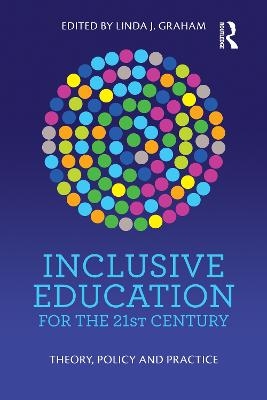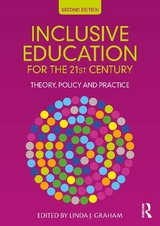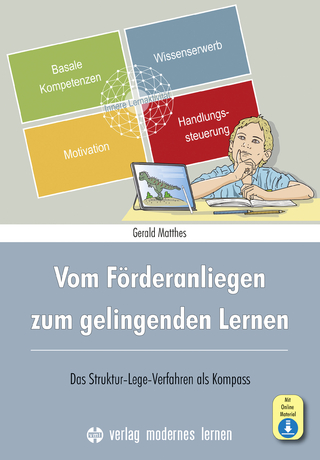
Inclusive Education for the 21st Century
A&U Academic (Verlag)
978-1-76052-709-9 (ISBN)
- Titel erscheint in neuer Auflage
- Artikel merken
Placing a student on the autism spectrum in a busy classroom with a pair of noise-cancelling headphones and an aide to deal with the inevitable meltdowns is often done in the name of 'inclusion', but this is integration and not inclusive. How can teachers and schools create genuinely inclusive classrooms that meet the needs of every student?
Research evidence indicates the strategies that make schools inclusive for students with disability benefit all students. Yet many schools are still operating under twentieth-century models that disadvantage students, especially those with disability.
Inclusive Education for the 21st Century provides a rigorous overview of the foundational principles of inclusive education, and the barriers to access and participation. It explores evidence-based strategies to support diverse learners, including specific changes in curriculum, pedagogy and assessment practices, and the use of data. It addresses the needs of children with physical, sensory and intellectual disabilities, as well as those with complex learning profiles, including mental health issues.
With chapters from leading experts from Australia and the UK, Inclusive Education for the 21st Century addresses common issues in both primary and secondary schools. Underpinned throughout by research evidence, it is designed to assist educators to develop the deep knowledge required to make inclusive education a reality in all schools.
Linda J. Graham is a Professor in the School of Early Childhood and Inclusive Education at the Queensland University of Technology. She is the Chair of the Academic Advisory Panel for All Means All: Australian Alliance for Inclusive Education and has published widely on inclusive education.
Part I: Introduction and Fundamental Concepts
1 Inclusive education in the 21st century
2 Fundamental concepts of inclusive education
3 Does inclusion work?
Part II : Educators' Obligations under International and National Legislation and Policy
4 Inclusive education as a human right
5 Legislation, litigation and implications for inclusion
6 What is the NCCD and what does it mean for my practice?
Part III : Universal Evidence-based Strategies to Effectively Teach Diverse Learners in Supportive and Safe Inclusive Environments
7 Using assessment data to support student learning
8 Universal approaches to curriculum, pedagogy and assessment
9 Making adjustments to curriculum, pedagogy and assessment
Part IV : Developing Inclusive School Cultures through Inclusive and Ethical Practices
10 Developing inclusive school cultures through ethical practices
11 Putting students at the centre
12 Nurturing close student-teacher relationships
13 Promoting student wellbeing and mental health through social and emotional learning
14 Developing productive partnerships with parents and carers
15 Collaborating with colleagues and other professionals
16 Rethinking the use of teacher aides
Index
| Erscheinungsdatum | 05.12.2019 |
|---|---|
| Sprache | englisch |
| Maße | 156 x 234 mm |
| Gewicht | 621 g |
| Themenwelt | Sozialwissenschaften ► Pädagogik ► Sonder-, Heil- und Förderpädagogik |
| ISBN-10 | 1-76052-709-2 / 1760527092 |
| ISBN-13 | 978-1-76052-709-9 / 9781760527099 |
| Zustand | Neuware |
| Informationen gemäß Produktsicherheitsverordnung (GPSR) | |
| Haben Sie eine Frage zum Produkt? |
aus dem Bereich



